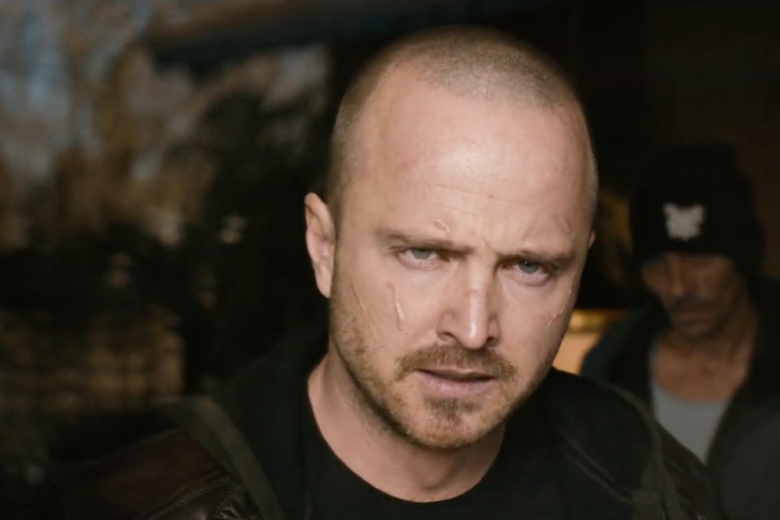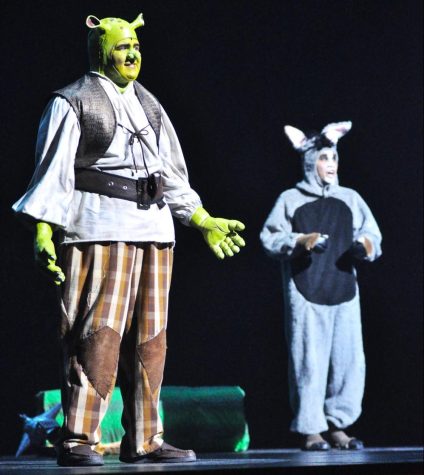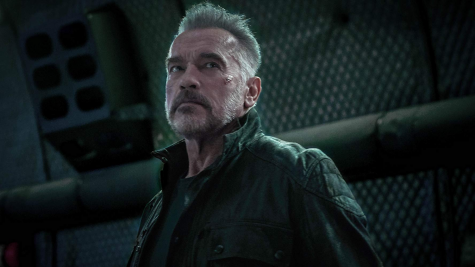El Camino: The Unnecessary Epilogue
“Breaking Bad,” created by Vince Gilligan and starring Bryan Cranston and Aaron Paul, is considered by many to be one of, if not the greatest television shows of all time. Running for five seasons between 2008 and 2013 on AMC, the show documented the downfall of Walter White, portrayed by Bryan Cranston, a high school chemistry teacher in New Mexico diagnosed with inoperable lung cancer and two years to live. In a desperate attempt to support his family he teams up with his former student Jesse Pinkman, portrayed by Aaron Paul, to cook and sell crystal meth, becoming a drug kingpin in the process.
“Breaking Bad” was smart, tense, well shot and written, and has one of the greatest television finales in history. This is why it was worrying when a “Breaking Bad” movie about Jesse Pinkman after the events of the show was announced. The ending of “Breaking Bad” was perfect, and it felt unnecessary to add on to it, especially when considering AMC curb-stomping their dying properties. “The Walking Dead” is losing most of its leading cast members in a short amount of time and constantly has some sort of issues with producers, and “Better Call Saul” is starting to become a soulless cash grab created only for the sake of milking “Breaking Bad” for as long as possible, years after it ended. After the trailer was revealed however, it felt like this might have had a chance at being amazing. Best of all, it premiered on Netflix, making it accessible for everyone to watch the second it comes out. Looking back on it now, the trailer is pretentious and manipulative to an extent, and is frankly more entertaining than the actual movie.
“El Camino: A Breaking Bad Movie,” directed by Vince Gilligan and starring Aaron Paul returning as Jesse Pinkman, doesn’t deserve the title of a movie. It could be considered an epilogue to “Breaking Bad” by giving unnecessary information no one really needed, but it does not work as a film. Aaron Paul was going around calling it a “piece of cinema history” and most review sites were giving it 9/10s and 10/10s. However, when actually watching it, the film feels like it panders to fans in an Oscar-bait attempt to be considered a masterpiece without understanding the core fundamentals of what a movie should be. It showcases the potential Vince Gilligan and Aaron Paul have, but never truly demonstrates it and feels so held back by “Breaking Bad” that it can’t tell a story of its own.
Before ripping it apart with the criticisms, it’s important to note the many things “El Camino”gets right. Aaron Paul has an amazing performance as Jesse Pinkman, giving off the feeling of a tortured and scarred human being. He has many scars on his face and body that are shown in a few shots, but his behavior and desperation demonstrate there are deeper scars in his mental state. Aaron Paul is a good actor and one that doesn’t get enough credit for how well he portrays his characters.
There were many shots that were clearly done with thought and care, unique angles, interesting uses of focus, and an overall very appealing cinematography. There was a lot of visual appeal with almost every shot and it felt like a real film, rather than just a TV movie.
There are some very smart moments. It would be a spoiler to go over them as most happen during pivotal moments in the plot, but it was easy to tell that the writers had their heads screwed on right; mostly. There are also many intense moments that really leave the audience at the edge of their seats, but there’s another problem involving this that will be explained later.
Finally, this works well (ish) as a new ending to Breaking Bad for fans, kind of, but does not work by itself.
The movie does not have context for the names of characters, the references, or significance of certain events. It does have various flashbacks that take up a third of the movie, but even then it doesn’t explain much to the unaware viewer the names of characters like Todd or Skinny Pete, or why Jesse is captive and why certain things are being shown to the viewer. All these flashbacks convey is that Jesse was held in a cage and got screwed up during his year of captivity and was mentally tormented to an almost irreparable state, something people already knew if they watched “Breaking Bad” or better yet viewed Aaron’s performance in this movie along with one line where Badger asks Jesse “is it true they kept you in a cage?” The film does explain some context via these flashbacks, just not the integral information necessary to properly understand and evaluate the film and just further overemphasizes the obvious.
If this were just a new episode of “Breaking Bad,” it wouldn’t matter much because that show is intended to watch in order, but with movies, someone should be able to watch one movie out of order in a series and still understand it, and even if this was a new episode of “Breaking Bad,” it would be nowhere near the absolute perfection of the final episode with Walt dying.
To those who say that this isn’t supposed to work as a standalone movie and that it’s still amazing, note that it’s not called Breaking Bad The Movie, it’s called “El Camino.” It’s about a different person, has different camera work, aesthetic, and even the program it premieres on is different. It will be criticized as a standalone movie and not by the merits of its previous work. That’s like if someone said that because “Star Wars: The Force Unleashed” was the best Star Wars game ever that “Star Wars: The Force Unleashed II” deserves an 8/10 automatically because the first one was so good. “Spider-Man: Far From Home” wasn’t that good — I actually think it’s horrible — but it can be understood and criticized without the context of “Avengers: Endgame” and “Spider-Man: Homecoming” or even the Spider-Man mythos in general. The Marvel Cinematic Universe is a perfect example of this critical viewpoint as each film isn’t a sequel to one another, they’re all just connected in the same world.
With that, there’s no genuine payoff for anything throughout this movie. Despite its moments of tension, there’s no actual climax to speak of. In movies, or anything focusing on a narrative, there’s a series of events that must take place in order for it to work. There must be an expositional moment, rising action, climax, falling action, and resolution. This may sound familiar to anyone who has ever taken a middle school English class. In “El Camino,” there’s exposition and a resolution, but the rising and falling actions kind of blend as its moments of tension leading up to an unsatisfactory ending. Either the ending can be considered the climax, in which nothing really happens, or the ending is the resolution, and the entire movie just feels like the epilogue to something from five years ago.
This clearly seemed to be the kind of movie that would emotionally drain someone, and it did. It felt like nothing watching this because nothing of genuine significance happened. The most climactic scene in the movie is a 30 second gunfight and for some reason an explosion. That’s it. The ending, in and of itself, is just “the how” to “the what” that everyone already knew would happen in the “Breaking Bad” ending. Jesse cuts his ties with the drug trade. That’s it. Jesse doesn’t change in any way that didn’t already happen in “Breaking Bad,” there aren’t any escalating stakes aside from the obvious, and there’s no genuine character arc unless the context of “Breaking Bad” is applied.
“El Camino” serves as an extra explanation to an ending we already knew. It’s an epilogue for a character who has already gone through the journey and is almost at the destination to the point where he is already there. Someone should not watch this movie unless they have at least a basic understanding of the overall plot of five years worth of television. There is a skippable recap not part of the film on Netflix and all it does is recap the last season. “El Camino” has many redeemable qualities, but is nowhere near the “piece of cinema history” the marketing was constantly telling us it was. Fan pandering filler is the best way to describe the series of events. It’s an empty shell of wasted potential, and that’s the only thing that could truly explain this movie.
Final Rating: C-
Pros: Cinematography, acting, tension building, a few instances of smart writing and dialogue.
Cons: Lack of context, lack of payoff, held back by previous works, wasted potential, pandering.

Colin Campbell is the senior managing editor for the Eagle Angle. His interests are current events, political discussions, criticizing and making fun of...













